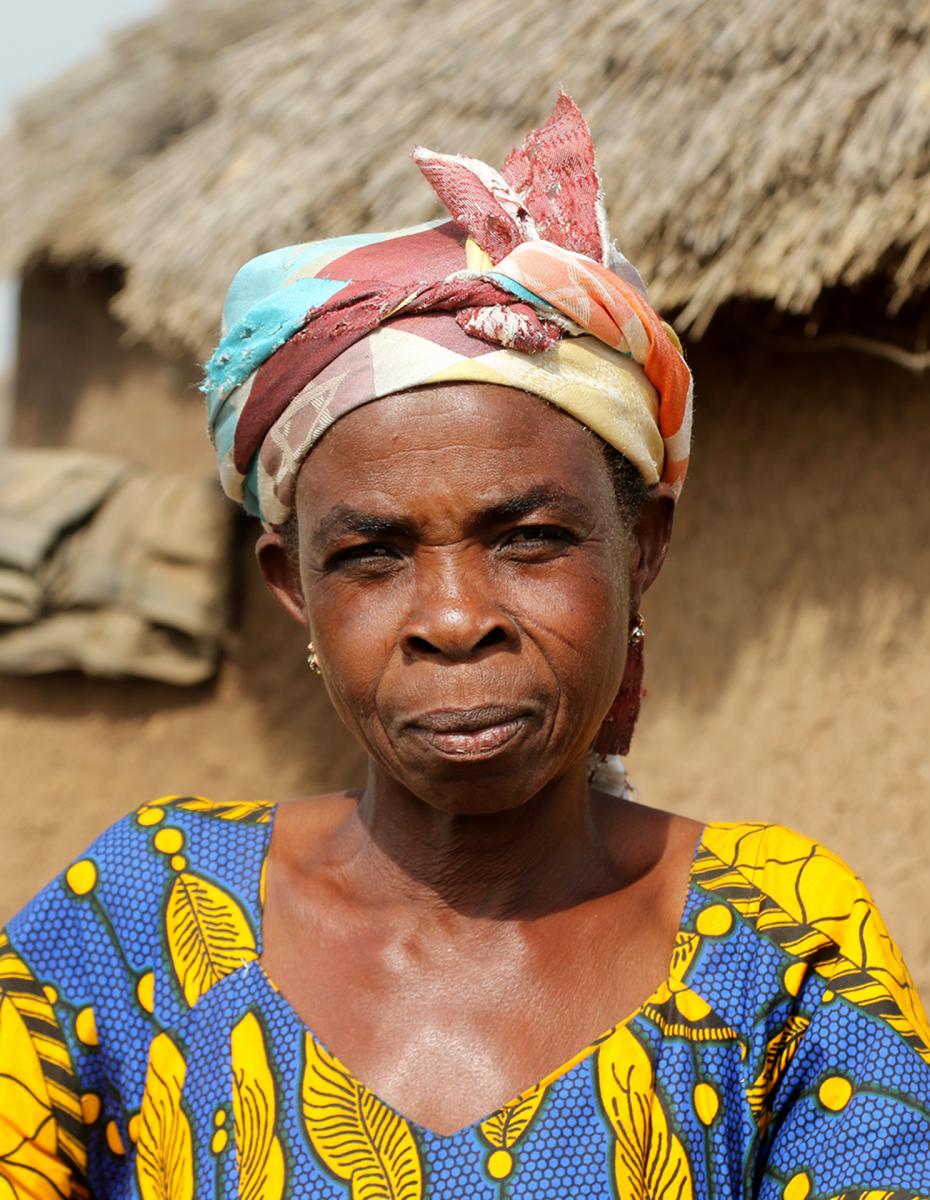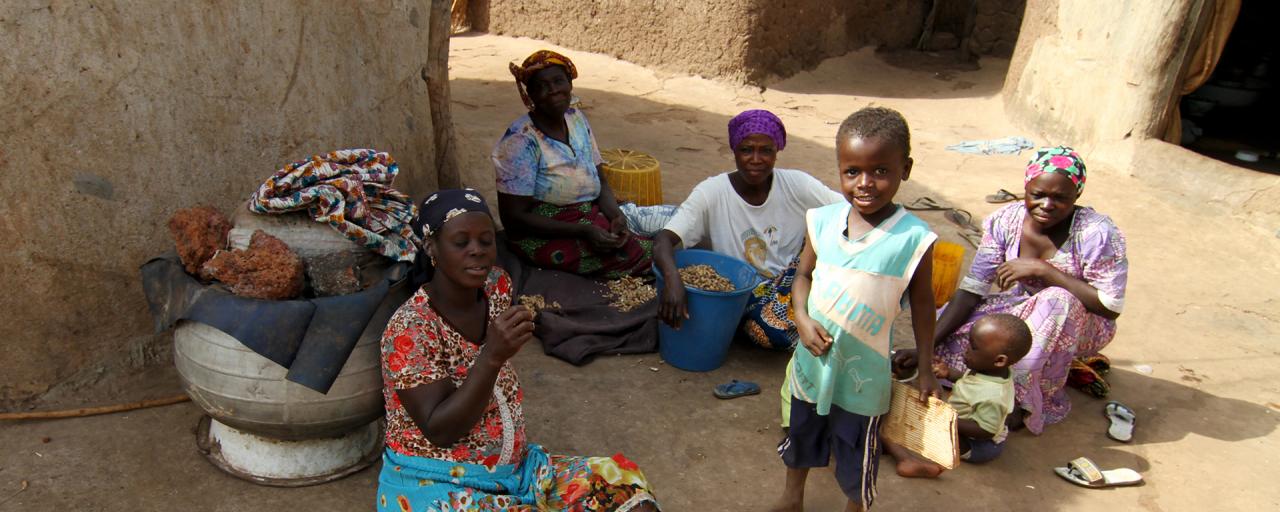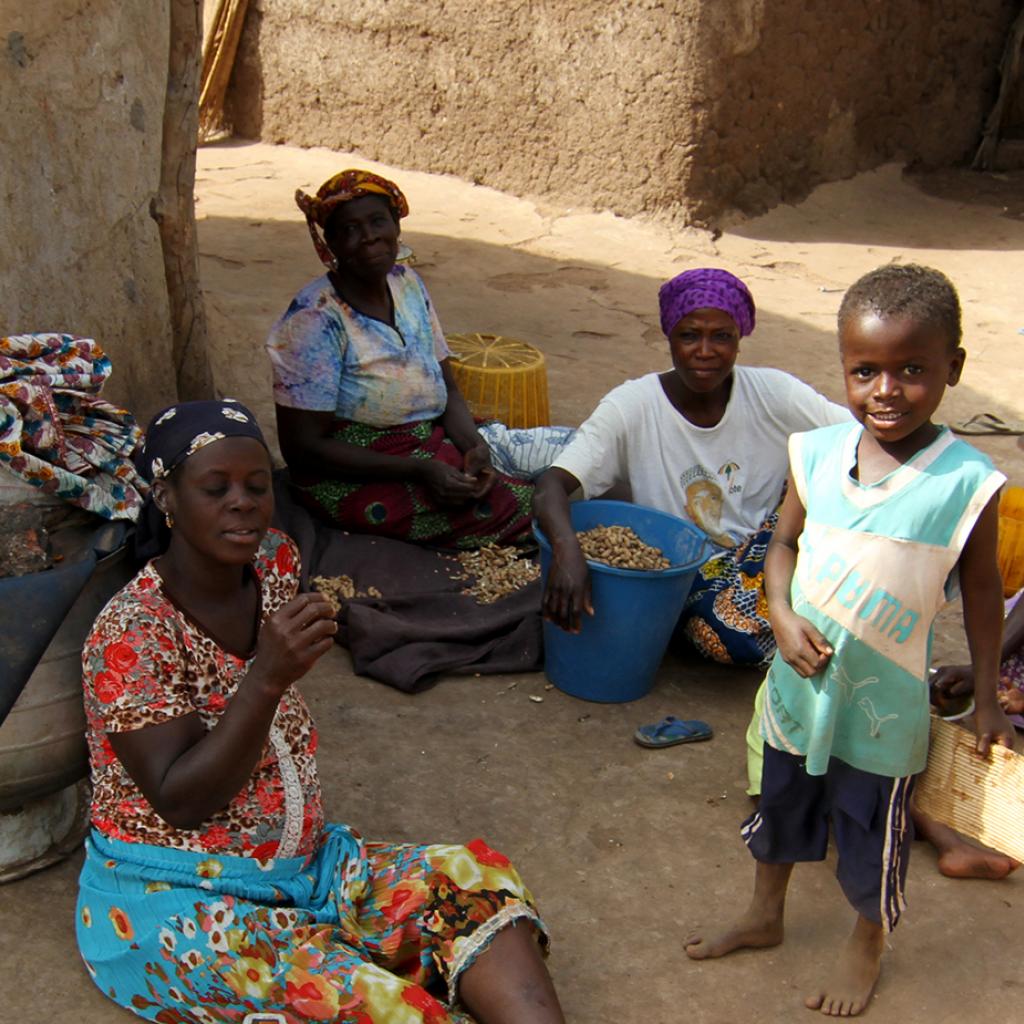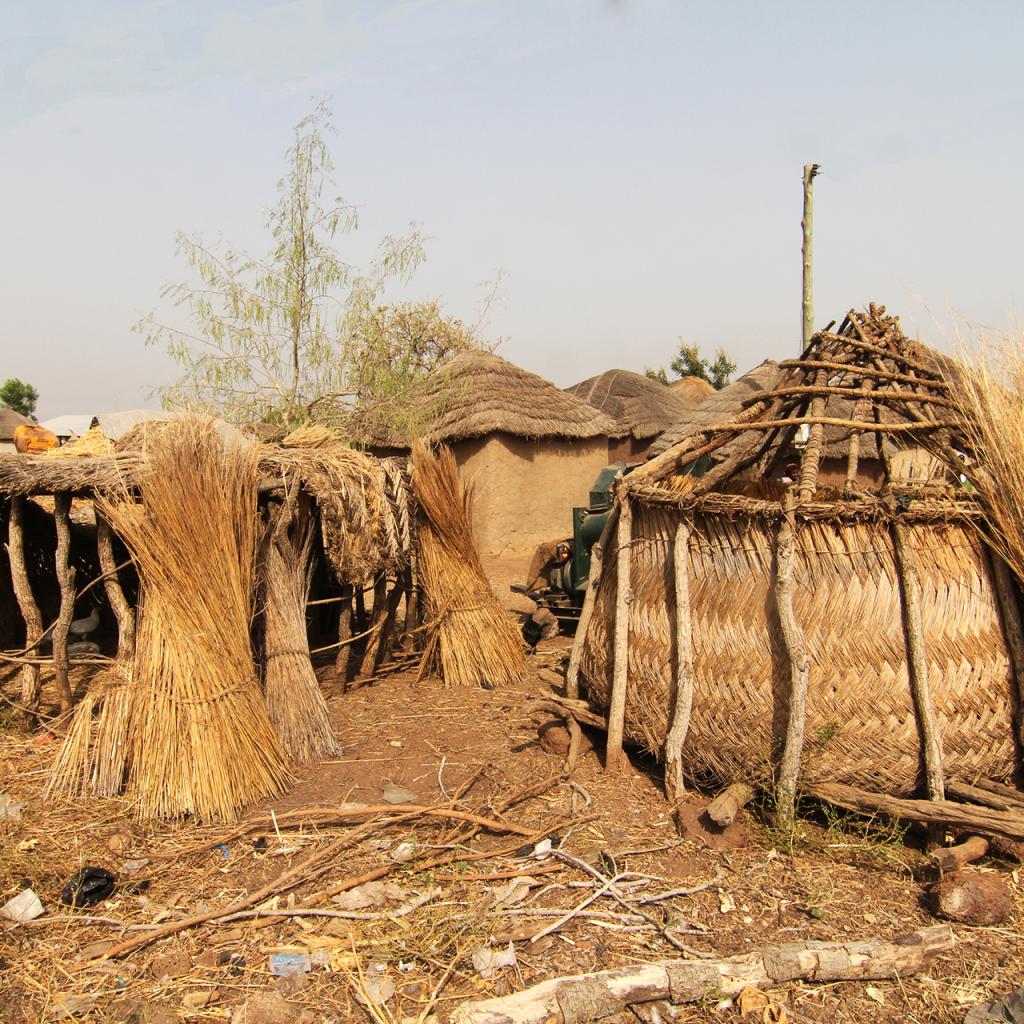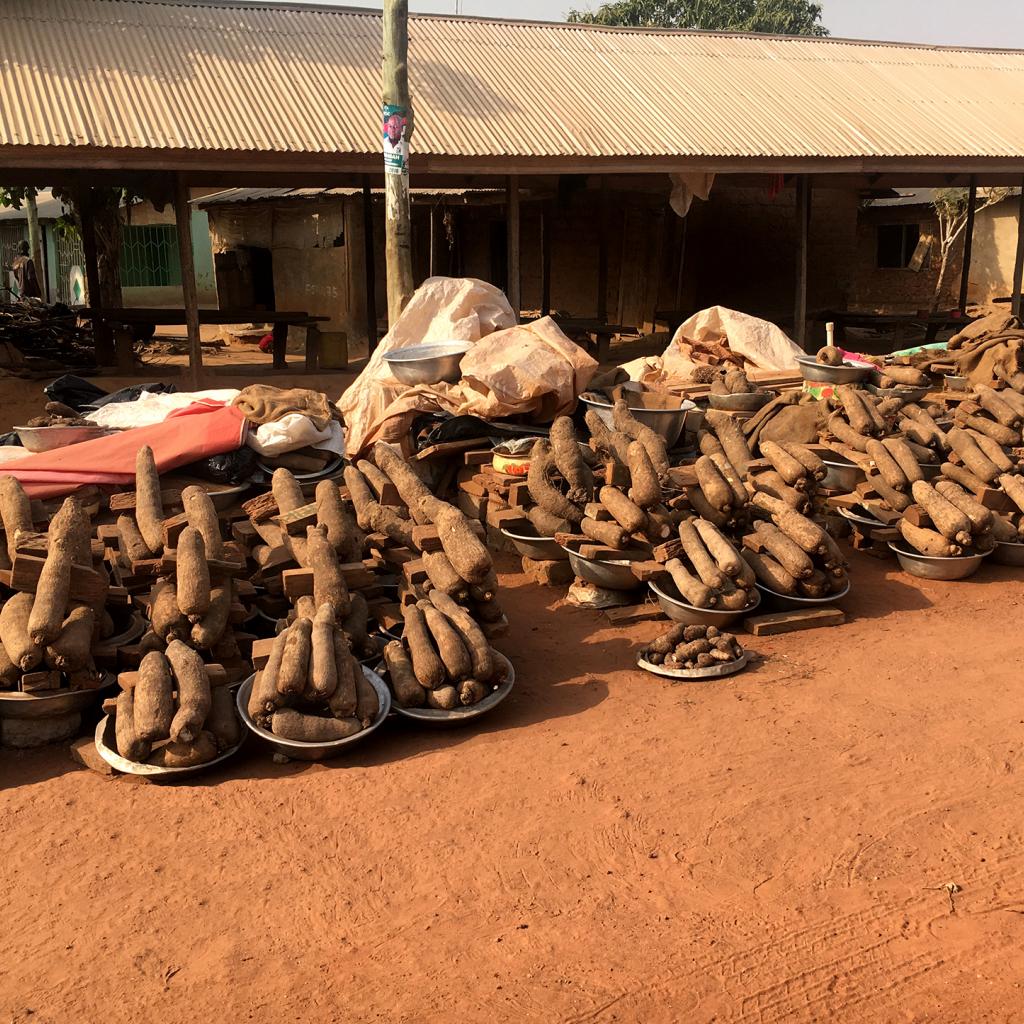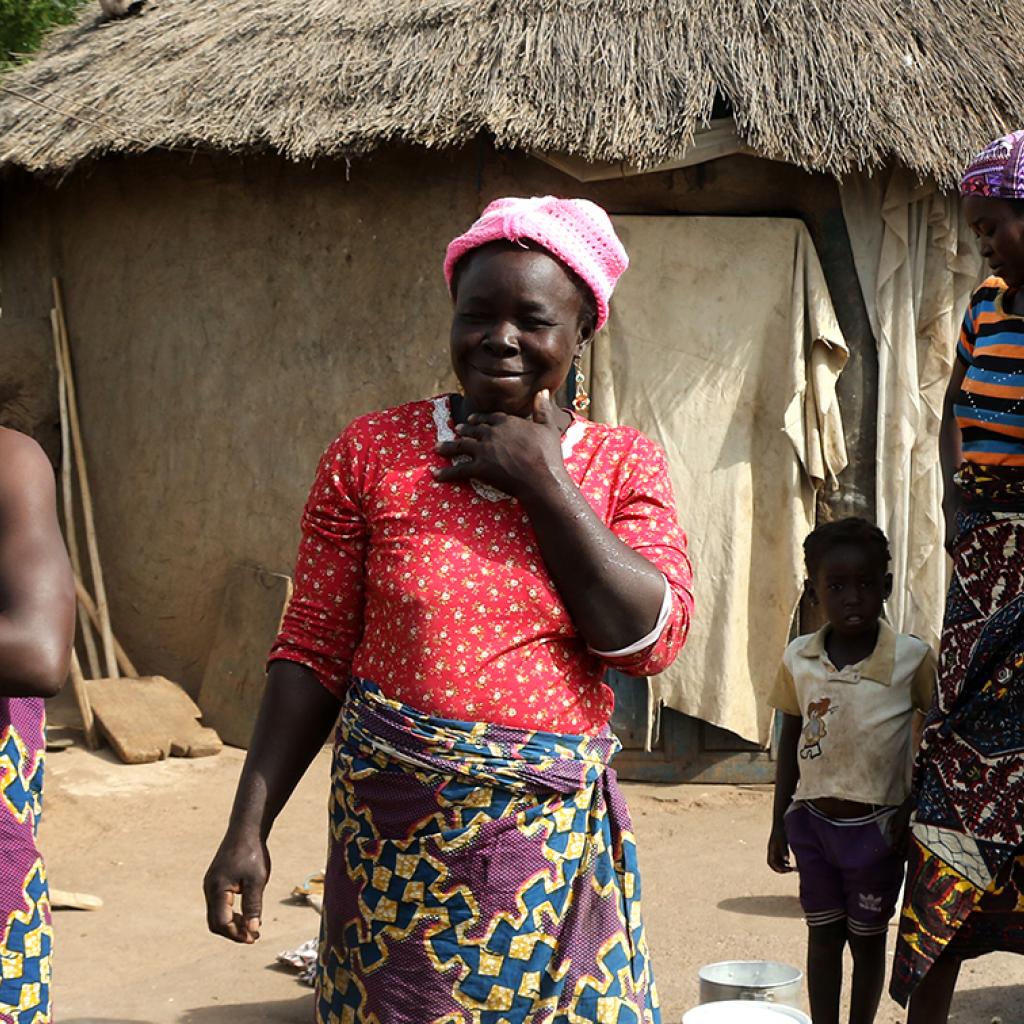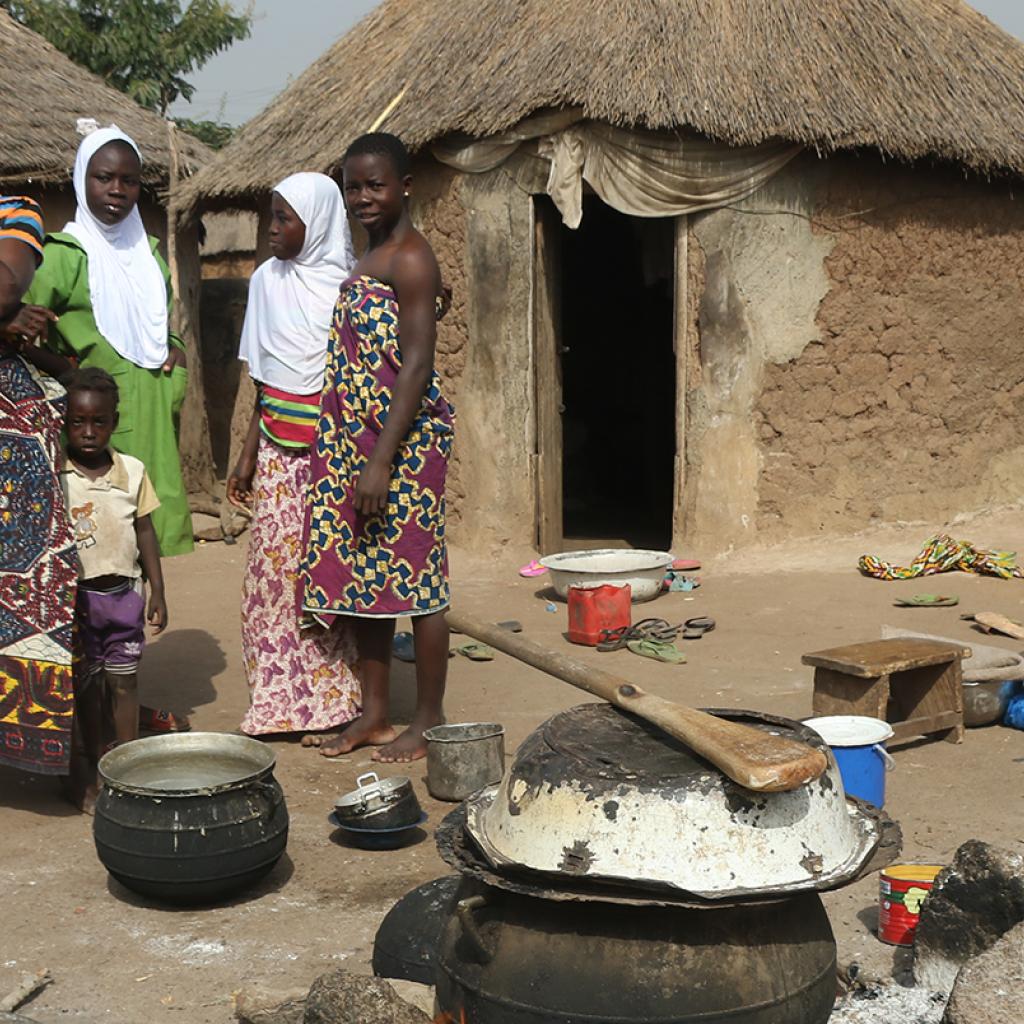The Konkomba, also known as Komba, is an ethnic group that occupies the Northern plains of Ghana, on the banks of the Oti river, a region that, during the Harmattan, sees visibility going down a few hundred meters and the air becoming heavy, due to the sand blown by the wind from the Sahara Desert.
It is believed that the Konkomba live in today's Ghana since ancient times and that they were forced to move to the East, towards the present Togo, following the wars and the relative invasions by the Dagomba, who were militarily stronger, thanks to the use of cavalry.
Later the Konkomba were fierce opponents of the European colonial powers, who tried to invade and dominate these territories, and fought long to defend their lands, both against the Germans and against the British.
Equipped only with bow and arrows, the "rebel" clans of the Konkomba did not lose the opportunity to inflict losses to the European armies and this gave rise to heavy counteroffensives on the part of the Germans, who exterminated entire clans without any mercy.
Older people still show signs of punishment inflicted by the Germans and the British as the amputation of the thumb, that was cut off to prevent the use of the bow and arrows.
The disadvantage of the Konkomba to their opponents, both local and European, resided in the fact of being a headless population, that means without a chief and without a central government structure, this made them vulnerable, because they were divided into a multitude of clans, who acted without a coordinated strategy.
The Konkomba were often defeated by the more organized Dagomba and Gonjas, who imprisoned them and sold them as slaves on the shores of Ghana to the Europeans.
This sad past has left deep wounds and even today the Konkomba have a conflictual relationship with both the Dagomba and the Gonjas, further exacerbated by religious reasons; the Konkomba are in fact animists and Christians, unlike the Dagomba who are Muslims instead.
Another reason for conflict is the issue related to the ownership of land: the Konkomba cultivate lands that they believe to be their ancestral property but, in fact, passed under the control of the Dagomba, who hold, to all effects, the property.
From the data of the last census it appears that the Konkomba people exceeds 700,000 individuals and of these 640,000 reside in Ghana, while about 80,000 in the neighboring Togo.
This population of warriors and farmers speaks Lekpokpam, a language belonging to the Gur linguistic group; this language is very similar to the language spoken by the neighboring Mole-Dagbani populations.
Today the Konkomba are a population of laborious farmers, engaged in the large-scale production of sweet potatoes, sorghum but above all of yam.
The Konkomba, unlike other African populations, do not have many rites of passage, the only true ritual is celebrated to say goodbye to a deceased person.
The funeral ritual of the Konkombais rather elaborate and involves up to 450 people, who pay homage to the deceased for a period ranging from a week to ten days.
The tradition of marriage is rather curious: boys aged 20 to 24 choose their bride when she has a few months of life and, for the following two decades, they must sustain her before they can actually live with her.
